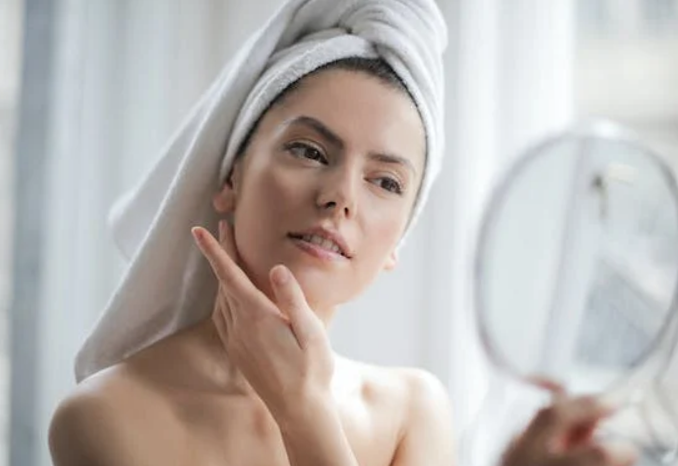
Looking after your skin is an ongoing process. As you get older, you might notice that your skin doesn’t look as healthy as it used to. Your skin might also react differently to the elements and your skincare routine.
This is why it’s essential to be more diligent with your skincare and include measures beyond cleansing and moisturizing. There are many ways to improve your skin’s health, but first, you must understand why it is so important.
So what does good skin have to do with you? Well, for starters, healthy-looking skin reduces the risk of developing diseases such as eczema or rosacea later in life. It also improves your self-confidence and gives you a glowy appearance, like when people say, “that person has great skin!” And not forgetting that it helps reduce the visible signs of ageing.
If you are looking to improve your skin’s health, here are six ways to do so:
1. Reduce stress
When stressed, the human body produces cortisol, which can accelerate ageing when it’s in excess. To make your skin look young and healthy, you need to keep your cortisol levels at a healthy minimum.
There are many ways to reduce stress, such as meditating or walking in nature. Another way is to incorporate skin-friendly ingredients into your skincare routine. Essential oils, for example, are great for stress reduction.
Other essential oils that have skin-friendly properties include lavender, rose, chamomile, and ylang-ylang. Coconut oil is another excellent choice if you’re looking for a skin-friendly ingredient in your skincare routine. It has anti-inflammatory properties and promotes collagen production, which means it can help prevent fine lines and wrinkles.
You can also consider using CBD products such as CBD gummies to help you reduce stress and feel relaxed for healthy skin. CBD has been proven to reduce stress and anxiety, which is essential for skin health.
2. Drink more water
When it comes to skincare, many people overlook the importance of hydration. Hydration is one of the most vital ways to keep your skin looking young. Dry skin is more likely to develop wrinkles and more susceptible to conditions like eczema and psoriasis.
Drinking water is the best way to keep your skin hydrated. Dehydration is a sign that your body isn’t receiving enough water, and it affects various parts of your body, including your skin. Dry skin is likely to wrinkle and age faster.
You should drink 2 litres of water daily to keep your skin hydrated. Another added benefit of drinking lots of water is that it will flush out toxins that could be damaging your skin.
As a result, your pores remain unclogged and clean. Water is also a great source of antioxidants, which help reduce the signs of ageing, maintain skin elasticity and keep it looking plump and youthful.
3. Don’t forget to moisturize
Most people only focus on moisturizing their skin during the cold winter, but you also need to do it during summer. The only difference is that you need to moisturize your skin during the warmer months. Dry skin can lead to wrinkles, uneven skin tone, and acne.
Moisturizing will keep your skin hydrated and plump, and it also helps to maintain a youthful appearance. There are many different types of moisturizers on the market, so you must choose the one best suited to your skin type.
If you have oily skin, you need to choose an oil-free moisturizer. If you have dry skin, pick a moisturizer rich in ingredients like shea butter and jojoba oil. And if you have combination skin, you can use both. It is recommended that you use a moisturizer with SPF. This help protects your skin from the sun, which can cause wrinkles and age spots.
4. Protect yourself from UV rays
The sun’s UV rays can damage your skin and lead to hyperpigmentation and premature aging. And unfortunately, those with fairer skin are at a high risk of developing sun damage. To protect your skin from UV rays, you must use sunscreen with an SPF of at least 30.
When shopping for sunscreen, ensure it has broad-spectrum protection, preventing UVA and UVB rays. When you’re in the sun, make sure to apply it before you start to sweat. Otherwise, it could rub off and not protect you from the sun’s harmful rays.
5. Try out different masks
Using face masks is a fun way to treat your skin. There are many different types of masks out there. You can try different ones to see which one works best for you. Peel-off masks are great for removing blackheads and unclogging your pores.
Hydrating masks are for people with dry skin who need an extra boost of hydration. You can also try out different DIY masks at home, such as an avocado face mask or a honey and turmeric face mask.
Using face masks at least once a week can help nourish your skin and improve its health. All you need to do is apply your mask of choice and let it sit for 15-20 minutes.
Conclusion
Overall, the most vital thing to remember when it comes to improving the health of your skin is to be consistent. You can’t expect to incorporate two or three new products and see visible results. It takes time, so be patient and follow your skincare routine.
Reference Links
https://newsinhealth.nih.gov/2015/11/keep-your-skin-healthy
https://www.medicalnewstoday.com/articles/320071
https://www.mayoclinic.org/healthy-lifestyle/adult-health/in-depth/skin-care/art-20048237




